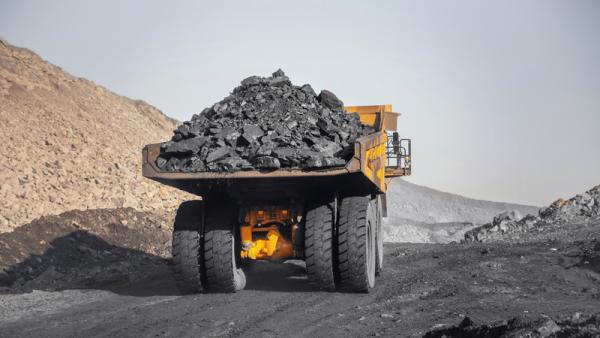Parilov / Shutterstock

Xunpeng Shi, Principal Research Fellow, Australia-China Relations Institute, University of Technology Sydney |
This article appeared in the Asia & the Pacific Policy Society’s blog, Policy Forum, on May 25 2020. It has been lightly edited for clarity.
Already-fragile Australia-China relations have been put under even more strain in recent days by China’s ‘anti-dumping’ actions against Australian barley exports and trade sanctions on Australian beef. While both the Australian and Chinese governments seem to agree that the reason for the beef ban is failing to meet Chinese health standards, the saga of Australia’s leadership on the COVID-19 probe suggests that the barley sanctions may be politically motivated.
After a phone call with US President Donald Trump on April 22, Morrison’s government called for an independent inquiry into the origins of the coronavirus.
The Australian diplomatic intervention soon invited harsh penalties from China. The $600 million Australia-China barley trade and the entire beef industry have been at risk of being targeted with trade restrictions, and more of Australia’s agricultural exports, such as in dairy, wine and wool, could also be jeopardised.
However, none of this can be compared in magnitude with the value of Australian resources and energy exports. According to the [University of Technology Sydney Australia-China Relations Institute’s] April Australia-China monthly wrap-up, among $149.2 billion in Australian exports to China in the 12 months to February 2020, iron ore, coal and natural gas account for $80.7 billion, $14.2 billion and $13 billion respectively. In contrast, in the same period, the total export value of all food, live animals and beverages was $10.6 billion.
An important question, then, is whether China will extend its boycott to any of Australia’s resources and energy exports. The Global Times, a nationalist daily tabloid-style newspaper in China, suggested that the country could turn to Brazil for iron ore, coal, or natural gas.
Is this a real possibility? Well, the answer varies depending on the specific commodity.
Of these, the only commodity that has faced problems with China in the past is thermal coal. In early 2019, Australian coal imports through Dalian were subjected to delays in offloading cargo, allegedly due to custom clearance problems.
However, the preferential treatment of Indonesian and Russian thermal coal and Australia’s ban of Huawei from a build-out of their 5G networks suggest that coal imports can carry important political messages for China.
Coal is the most likely resource commodity to be subject to China’s further trade restrictions because China has more alternative suppliers that it could turn to. In 2018, China imported 35.4 percent from Australia, 31.3 percent from Indonesia, 15.9 percent from Mongolia and 11.7 percent from Russia.
Australian natural gas exports, on the other hand, are unlikely to be targeted for two reasons.
First, natural gas contracts are often very long-term with little volume flexibility. For example, 21 million tonnes of China’s 2019 import of 28 million tonnes of natural gas from Australia are sure to go ahead, as this is the minimum volume of imports guaranteed in the contract.
The first long term natural gas contracts between Australia and China won’t expire until 2031. Unless Chinese companies can successfully declare force majeure to nullify this minimum, which is unlikely, there is no way for China to go below the minimal contract volume.
Second, since natural gas prices have reached historically low levels, and China’s prices are lower than Australia’s domestic spot gas prices, a trade restriction will benefit, rather than hurt, the Australian economy, making this a pointless move from China. In April, China accounted for 40 percent of Australia’s exports and temporarily became Australia’s biggest gas export market.
The possibility of trade measures on iron ore is the third possibility. The Global Times also suggested that China imported 70 percent of its 1.07 billion tonnes of iron ore from Australia in 2019, and thus can punish Australia by switching to other suppliers, such as Brazil, but is this realistic?
The truth is that no other country could fill the gap in iron ore supply that would be left by Australia in the event of a trade ban. There is a shortage of iron ore in the market, and COVID-19 has further weakened iron ore supply capacity in Brazil, the second largest iron ore exporter. While China could theoretically hurt Australia with a trade boycott on iron ore, it would significantly damage its own economy in the process, making this an unlikely course of action.
So while commercial contracts and low domestic prices protect gas exports and international market conditions protect iron ore exports, coal exports are vulnerable, and Australian policymakers should keep this in mind.
Importantly, Australia should not cave to hysteria or fear about these possibilities. While China has the option to boycott Australia’s coal, the volume of trade is so big that a boycott would damage the relationship far more than China would be considering, particularly when more vulnerable commodities, such as beef, wine and dairy products could be considered first.
While this is unlikely, it remains possible. There could be still be trade frictions ahead amid weak demand for coal and mounting pressure to protect the Chinese domestic coal industry, but a measured approach that takes these facts into account is the best way forward for Australian leaders.
Author
Xunpeng Shi is Principal Research Fellow at the Australia-China Relations Institute, University of Technology Sydney.


